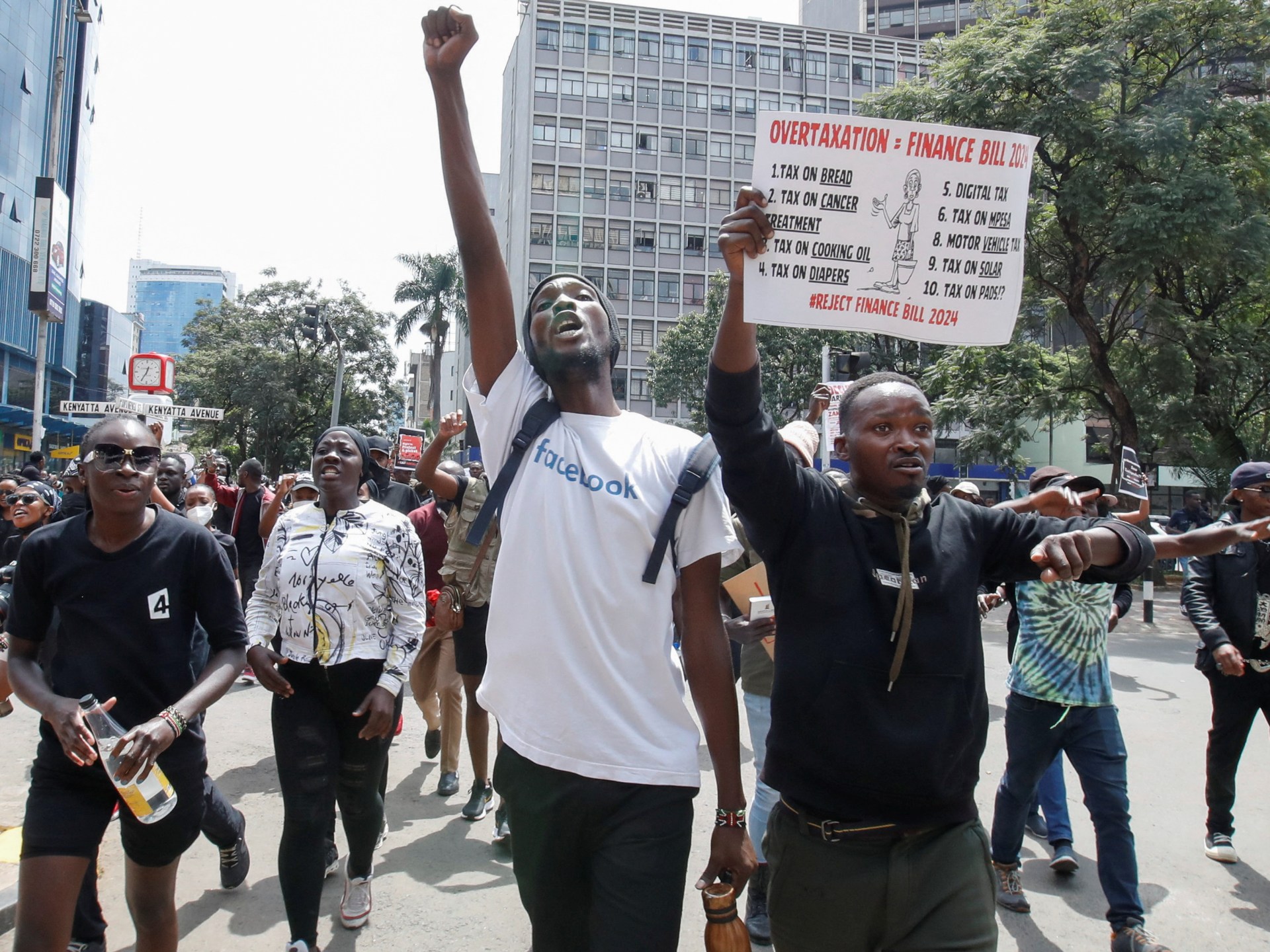
Civil society groups say 210 people were arrested, including protesters, journalists and observers from rights groups at the demonstration in Nairobi.
Kenya’s government has retracted plans to impose multiple tax hikes, the presidency said, announcing amendments to a controversial bill as police fired tear gas at protesters who gathered near the parliament building.
“The Finance Bill has been amended to remove the proposed 16 percent VAT on bread, transportation of sugar, financial services, foreign exchange transactions as well as the 2.5 percent Motor Vehicle Tax,” the presidency said in a statement on Tuesday.
The bill has triggered widespread opposition. Police fired tear gas to disperse hundreds of people who took part in protests dubbed “Occupy Parliament” near the parliament building in the capital, Nairobi earlier on Tuesday.
Civil society groups said 210 people were arrested, including protesters, journalists and observers from rights groups.
Rights group Amnesty Kenya said that some of its staff members observing the protests were arrested.
“We demand the immediate and unconditional release of all arrested protesters and observers,” the group said.
We demand the immediate and unconditional release of all arrested protestors and observers. We call on the @NPSOfficial_KE to uphold its duty to protect and respect the rights of Kenyan citizens to assemble peacefully. #OccupyParliament pic.twitter.com/wtadO7DI2l
— Amnesty Kenya (@AmnestyKenya) June 18, 2024
Nairobi Police Commander Adamson Bungei on Tuesday said that no group had been granted permission to protest in the capital. The right to peaceful protests is guaranteed in the Kenyan Constitution, but organisers are required to notify the police beforehand. Police generally give the go-ahead unless there are security concerns.
Kenya Law Society President Faith Odhiambo said that police used tear gas on lawyers at a Nairobi police station as they sought to see their clients.
The proposed tax changes contained in the government’s funding bill for the 2024/25 fiscal year are the latest effort by President William Ruto’s administration to boost revenue and reduce borrowing.
Last year, it introduced a housing tax and hiked contributions to the national health scheme in moves that also triggered protests.
Ruto last month defended the proposed taxes, saying the country must be financially self-sustaining.
“The whole principle is that you must live within your means,” he said. “I persuaded and I made a case to the people of Kenya that we must begin to enhance our revenue.”

Opposition leader Raila Odinga urged legislators to scrutinise the bill and vote to remove clauses that would burden the poor.
“It is worse than the one of 2023, an investment killer and a huge millstone around the necks of millions of poor Kenyans who must have hoped that the tears they shed over taxes last year would see the government lessen the tax burden in 2024,” he said in a statement in early June.
On Wednesday and Thursday, lawmakers will hold a line-by-line debate and vote on the legislation underpinning the budget.










